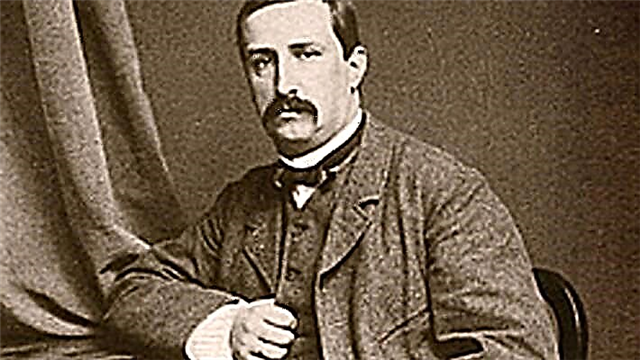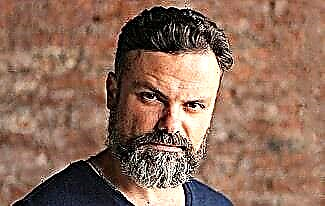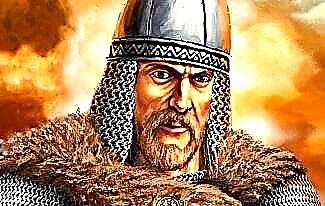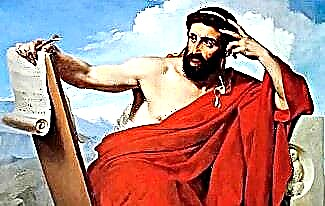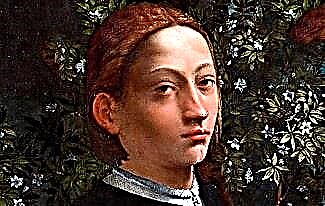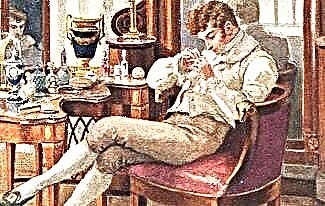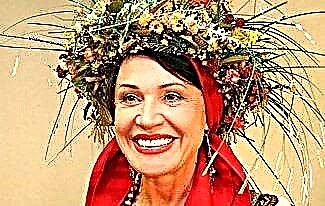Isaak Osipovich Dunaevsky (full name Itzhak-Ber ben Bezalel-Yosef Dunaevsky; 1900-1955) - Soviet composer and conductor, music teacher. Author of 11 operettas and 4 ballets, music for dozens of films and many songs. People's Artist of the RSFSR and laureate of 2 Stalin Prizes (1941, 1951). Deputy of the Supreme Soviet of the RSFSR of the 1st convocation.
There are many interesting facts in the biography of Isaac Dunaevsky, which we will talk about in this article.
So, before you is a short biography of Dunaevsky.

Biography of Isaac Dunaevsky
Isaac Dunaevsky was born on January 18 (30), 1900 in the town of Lokhvitsa (now the Poltava region, Ukraine). He grew up and was brought up in the Jewish family of Tsale-Yosef Simonovich and Rosalia Dunaevskaya. The head of the family worked as a small bank clerk.
Childhood and youth
Isaac grew up in a musical family. His mother played the piano and also had good vocal abilities. It is worth noting that the four Dunaevsky brothers also became musicians.
As early as early childhood, Isaac began to show outstanding musical abilities. Already at the age of 5, he could select various classical works by ear, and also had a talent for improvisation.
When Dunaevsky was about 8 years old, he began studying violin with Grigory Polyansky. A couple of years later, he and his family moved to Kharkov, where he began to attend a music school in the violin class.
In 1918, Isaac graduated with honors from the gymnasium, and the next year from the Kharkov Conservatory. He then graduated with a law degree.
Music
Even in his youth, Dunaevsky dreamed of a musical career. After becoming a certified violinist, he got a job in an orchestra. Soon the guy was invited to the Kharkov drama theater, where he worked as a conductor and composer.
It was during this period of his biography that Isaac Dunaevsky's professional career began. Simultaneously with his work in the theater, he gave lectures on music, was the leader of an army amateur performance, collaborated with various publications, and also opened music circles in military units.
Later, Isaac was entrusted with the head of the provincial music department. In 1924 he settled in Moscow, where he had even greater prospects for self-realization.
At the same time, Dunaevsky holds the post of head of the Hermitage Theater, and then heads the Satire Theater. From under his pen came out the first operettas - "Grooms" and "Knives". In 1929 he moved to Leningrad, where he worked as a composer and chief conductor of the Music Hall.

The very first production of Odysseus, set to the music of Isaac Dunaevsky and representing a satirical parody, was almost immediately banned. Around the same time, his fruitful collaboration with Leonid Utesov began.
It is curious that along with the director Grigory Alexandrov, Isaak Osipovich became the founder of the genre of Soviet musical comedy. Their first joint film project "Merry Guys" (1934), in which the key attention was paid to songs, gained immense popularity and became a classic of Russian cinema.
After that, Dunaevsky made his contribution to the creation of such paintings as "Circus", "Volga-Volga", "Light Path", etc. It is noteworthy that he also took part in the dubbing of movie characters.
In the period 1937-1941. the man led the Leningrad Union of Composers. Few people know the fact that he maintained friendly relations with Mikhail Bulgakov.
At the age of 38, Isaac Dunaevsky became a deputy of the Supreme Soviet of the RSFSR. At this time, he returns to writing operettas. During the Great Patriotic War (1941-1945), he served as artistic director of the song and dance ensemble of railway workers, giving concerts in different cities of the USSR.
The song "My Moscow", which was sung by the whole country, was especially famous among the Soviet listener. In 1950 Dunaevsky was awarded the title of People's Artist of the RSFSR.
It is important to note that despite the nationwide love and high position, the master often faced difficulties inherent in that era. Many of his works were banned due to the fact that they were written on the motive of Jewish themes.
Personal life
Over the years of his personal biography, Isaac Dunaevsky was twice officially married. His first chosen one was Maria Shvetsova, but their union was short-lived.
After that, the guy took the ballerina Zinaida Sudeikina as his wife. Later, the couple had their first-born, Eugene, who would become an artist in the future.

By his nature, Isaac was a very loving person, in connection with which he was in relationships with various women, including the dancer Natalya Gayarina and the actress Lydia Smirnova.
During the war years, Dunaevsky began a dizzying romance with the ballerina Zoya Pashkova. The result of their relationship was the birth of the boy Maxim, who in the future will also be a famous composer.
Death
Isaac Dunaevsky died on July 25, 1955 at the age of 55. The reason for his death was a heart spasm. There are versions that the musician allegedly committed suicide or was killed by unknown persons. However, there are no reliable facts proving such versions.
Photo by Isaac Dunaevsky








